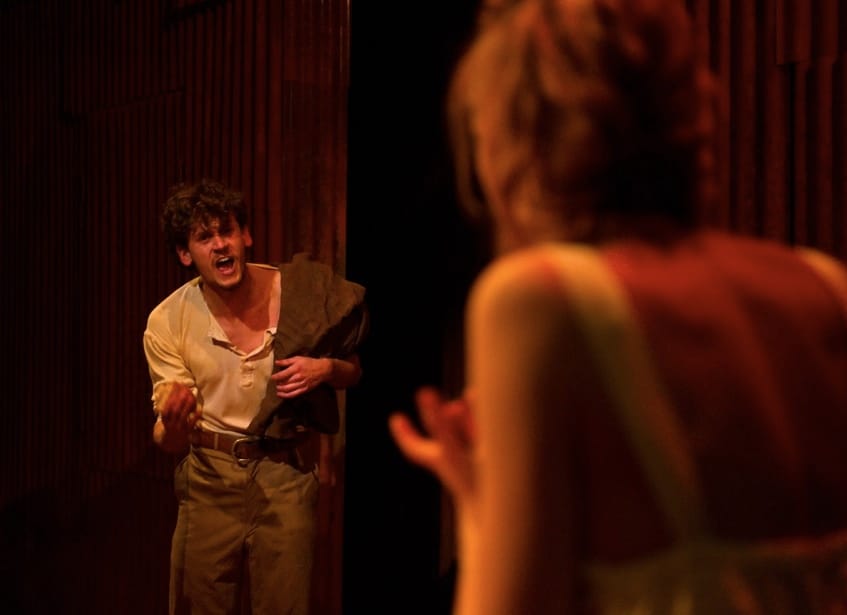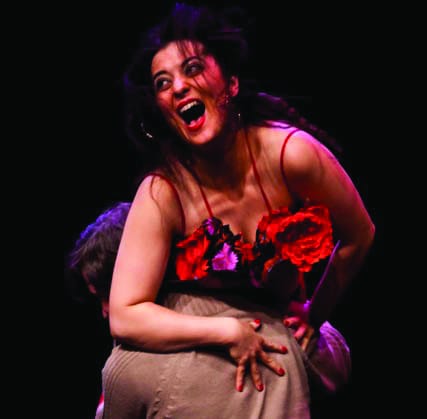Yerma-d not to see this!
"It’s this transformation from darling bud to withered flower that forms the spine of Lorca’s tragic play Yerma and whilst her character at the end may be pretty far from anyone you know, the character at the start is very familiar."

I imagine all of us know a ‘Yerma’ character – that girl who arrives as an innocent and pure fresher only to then link up with a guy in the first few weeks. He ensnares her despite his inability to satisfy her physical needs and provide her with children, all the while using her own naivety to convince her she is the source of her own problems, eventually driving her to despair in her childlessness and visit a crazy voodoo lady who lives under a tree in search of a solution. Hmm. Actually, on reflection, maybe not. But it’s this transformation from darling bud to withered flower that forms the spine of Lorca’s tragic play Yerma and whilst her character at the end may be pretty far from anyone you know, the character at the start is very familiar.
Brought this week to the Gate Theatre in conjunction with the Hull Truck, a cast of five present a new stripped down production of one of Lorca’s most incendiary plays. Yerma tells of a doting young girl’s desperate efforts to have children in the face of her uninterested (presumably arranged) husband Juan. Married off young with little worldly wisdom and living in the barren Spanish outback, Yerma’s life consists of little more than wifely duties and banal conversations with neighbour, Maria. Even these sour as Maria herself becomes a mother and the still childless Yerma a bad omen according to local superstition. Torn between her irrepressible maternal desires and the need to socially conform, Yerma is finally driven to clandestine means of impregnation and, when revelations surface regarding her husband and an amorous childhood friendship, she driven to unspeakable acts.
The gradual turning of the screws layers the plot with a polished finesse.
It says a great deal of our modern sensibilities that the two main objections to Lorca’s play on its publishing seventy years ago – namely its negative portrayal of Catholicism and discussion of homosexuality – would today cause hardly a murmur of discontent. All this commends the efforts of the production to modernize the piece. In reducing the piece down, a stark intensity is brought to the mundane conversation that constitutes the most revealing parts of the play. Played with a gentle innocence by Ty Glaser, Yerma’s tragedy is all the more painful and her unworldly nature emphasized opposite Alison O’Donnell’s earthy humour in the role of Maria.
The beauty of tragedy lies in the descent – the slow and inavoidable downfall of the tragic hero, whether it be Macbeth or Phaedra or Yerma. This production crafted theirs well, the gradual turning of the screws layering the plot with a polished finesse. Clearly the investment in the Jerwood Young Designers project is paying off – creating a set that is both visual appealing and economical is no mean feat and this production achieves both. Whilst the play provides intriguing parallels, most markedly with that of Lorca’s rumoured homosexual liaison with Dali, it lacks the tapestry that distinguishes more complete works of tragedy. For this reviewer, that is a tragedy in itself, as the able cast would be more than up to the task of something a little meatier.
Yerma runs at the Gate Theatre, Notting Hill, until December 17







